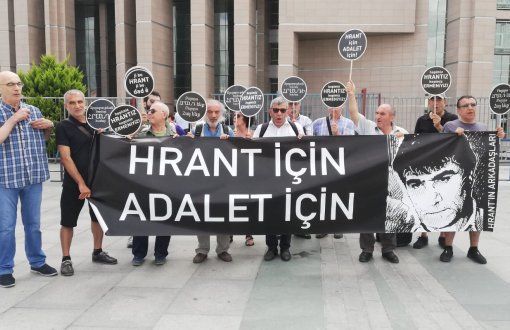bianet interviewed Prof. Dr. Özden Cankaya on TRT’s public television broadcasting policies and how it should cover the upcoming elections as Turkey’s official television networked received a lot of criticism for being “pro-government”.
Prof. Dr. Cankaya claimed that TRT currently served as the incumbent government’s television broadcasting network, not representing the country and its people. Emphasizing that TRT must become impartial towards political parties during the upcoming elections, Prof. Dr. Cankaya said: “This is not only a legal requirement, but also one of the most important requirements of democracy.”
TRT received a lot of criticism lately with some of them including:
* CHP Çorum deputy Tufan Köse submitted an official inquiry regarding the hour of coverage for all political parties on TRT in October 2012. It turned out that PM Recep Tayyip Erdoğan was covered alone for 44 hours, while CHP leader for 12 hours and MHP leader of 2 hours. BDP, on the other hand, appeared on TRT only for 22 minutes.
TRT also received criticism regarding its coverage during Turkey’s Gezi Resistance. On the other hand, Tuğrul Öner İnançer attended a program, saying that “it was inappropriate for women to go out during pregnancy”.
On January 25, TRT speaker Anda Özmen was fired after saying that he was switching from main opposition to “babe” opposition.
Departing from the last example, how do you situate the presenter’s words in terms of public television broadcasting?
Those words contradict with the principal of impartiality towards all parties. It is against TRT’s television broadcasting policies.
According to Article 8k of Turkey’s Law on “Radio and Television Establishment and television broadcasting Service”, the impartiality principle is defined. TRT speaker’s expression “babe opposition” is clearly a violation.
Because, in a way, this expression goes beyond the boundaries of humor and looks down on the aforementioned political party. However, the presenter must have remained equidistant.
TRT is usually criticized for “impartial coverage”. Why?
TRT did not cover Gezi Protests impartially. Because TRT broadcasted in a way to support the government’s claims and policies.
This situation is about TRT’s organizational structure. Even thought it became an autonomous agency after the 1982 Constitution, it never became autonomous on the practice. All executive board members of TRT are assigned by the government according to RTUK’s recommendations. The assignees of the government work like the hands of the government. They don’t make coverage in order to show the truth but to enhance political power. TRT, at this state, is functioning apart from the country and its people’s needs, but only as the government’s television broadcasting network.
The municipal election are approaching. How should TRT cover the elections according to the principals of public television broadcasting?
TRT must remain impartial and equidistant to all political parties. This is not only a legal requirement, but also one of the most important requirements of democracy.
TRT is entitled to broadcast according to the regulations submitted by Turkey’s Higher Election Council. An institution that is funded by all taxpayers of Turkey can’t solely broadcast favoring one political party or support its policies or make its propaganda.
Such television broadcasting policy would harm democracy. It would be against all legislations. In order to provide an impartial and equidistant television broadcasting, TRT must become autonomous. TRT can only embrace the whole society providing that it became autonomous both formally and really. (EA/BM)












.jpg)
.jpg)